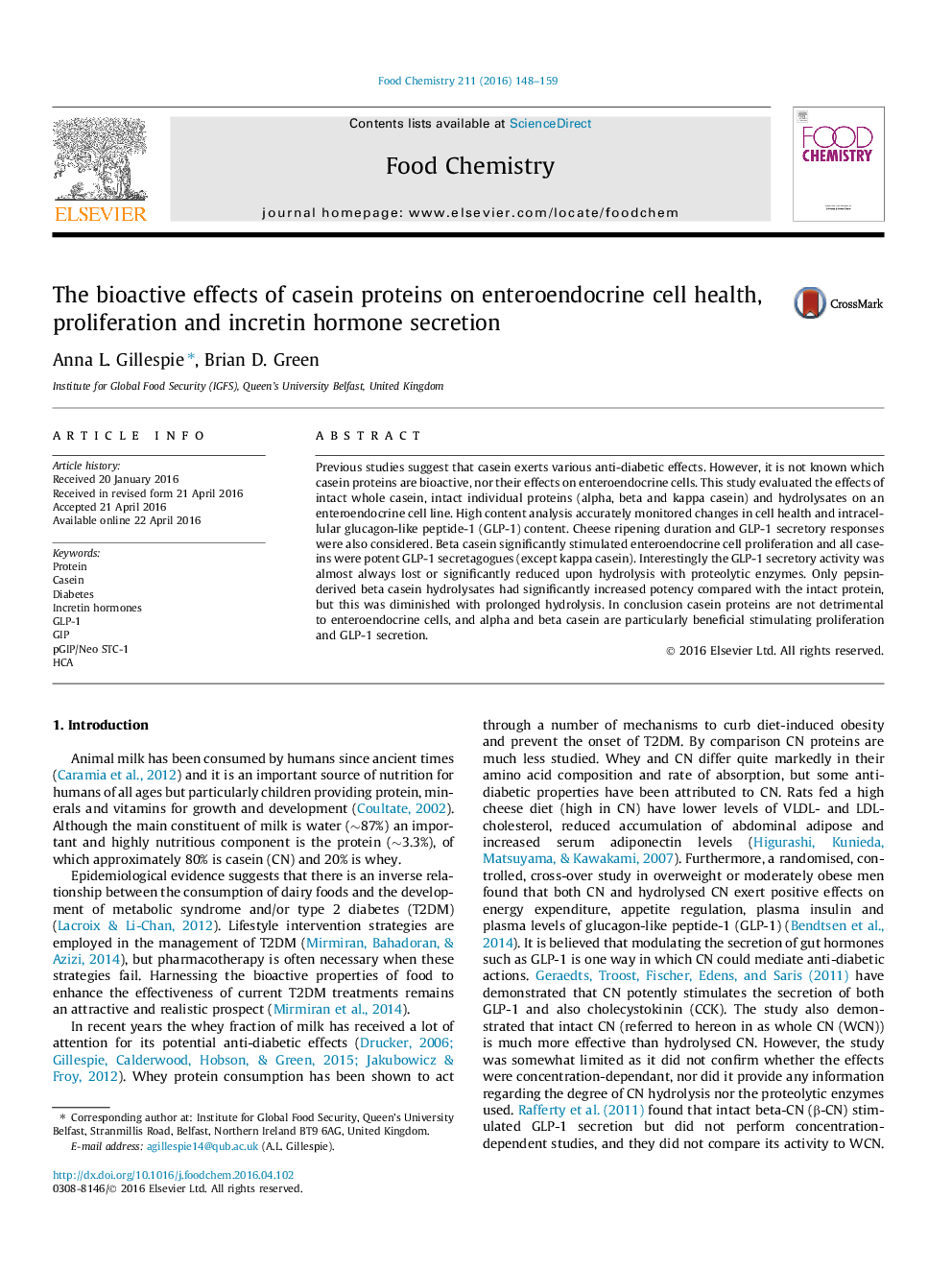| Article ID | Journal | Published Year | Pages | File Type |
|---|---|---|---|---|
| 7587914 | Food Chemistry | 2016 | 12 Pages |
Abstract
Previous studies suggest that casein exerts various anti-diabetic effects. However, it is not known which casein proteins are bioactive, nor their effects on enteroendocrine cells. This study evaluated the effects of intact whole casein, intact individual proteins (alpha, beta and kappa casein) and hydrolysates on an enteroendocrine cell line. High content analysis accurately monitored changes in cell health and intracellular glucagon-like peptide-1 (GLP-1) content. Cheese ripening duration and GLP-1 secretory responses were also considered. Beta casein significantly stimulated enteroendocrine cell proliferation and all caseins were potent GLP-1 secretagogues (except kappa casein). Interestingly the GLP-1 secretory activity was almost always lost or significantly reduced upon hydrolysis with proteolytic enzymes. Only pepsin-derived beta casein hydrolysates had significantly increased potency compared with the intact protein, but this was diminished with prolonged hydrolysis. In conclusion casein proteins are not detrimental to enteroendocrine cells, and alpha and beta casein are particularly beneficial stimulating proliferation and GLP-1 secretion.
Related Topics
Physical Sciences and Engineering
Chemistry
Analytical Chemistry
Authors
Anna L. Gillespie, Brian D. Green,
